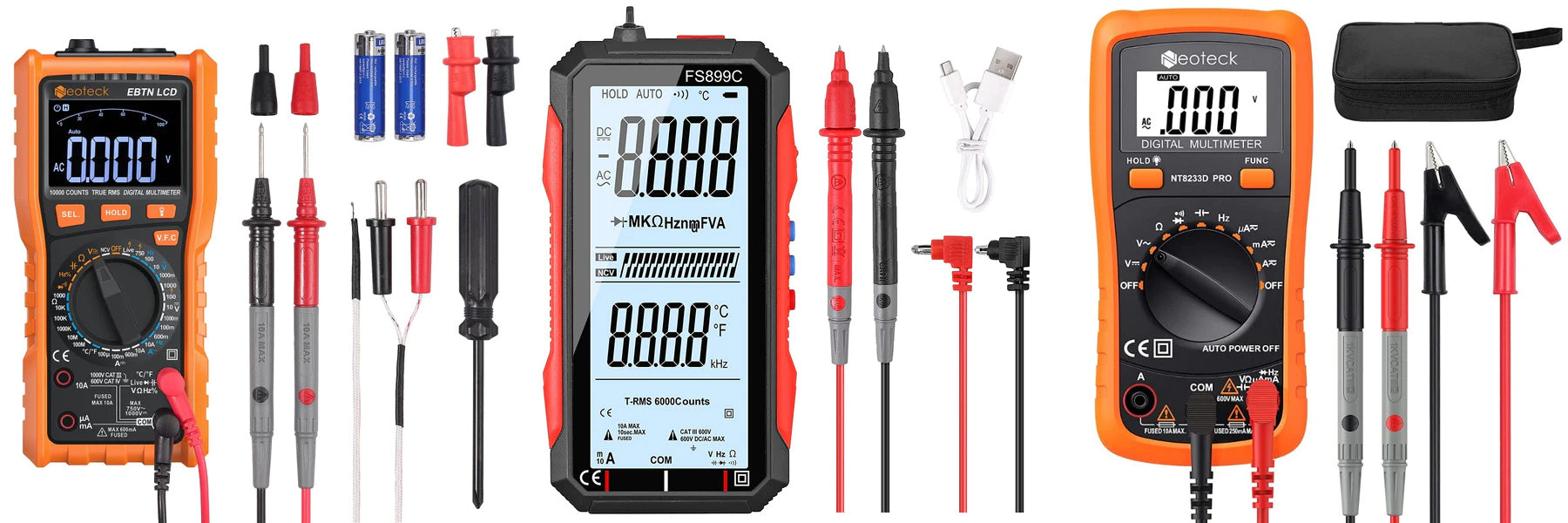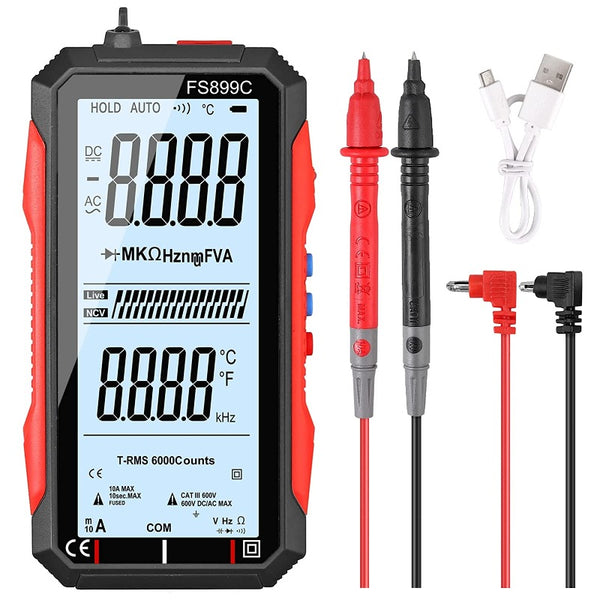What is a digital multimeter? How to use a multimeter


A digital multimeter is a test tool used to measure two or more electrical values—principally voltage (volts), current (amps) and resistance (ohms). It is a standard diagnostic tool for technicians in the electrical/electronic industries.
Digital multimeters long ago replaced needle-based analog meters due to their ability to measure with greater accuracy, reliability and increased impedance.
How to use a multimeter
Digital multimeters combine the testing capabilities of single-task meters—the voltmeter (for measuring volts), ammeter (amps) and ohmmeter (ohms). Often, they include several additional specialized features or advanced options. Technicians with specific needs, therefore, can seek out a model targeted to meet their needs.
The face of a multimeter typically includes four components:
Display: Where measurement readouts can be viewed.
Buttons: For selecting various functions; the options vary by model.
Dial (or rotary switch): For selecting primary measurement values (volts, amps, ohms).
Input jacks: Where test leads are inserted.
Test leads are flexible, insulated wires (red for positive, black for negative) that plug into the DMM. They serve as the conductor from the item being tested to the multimeter. The probe tips on each lead are used for testing circuits.
The terms counts and digits are used to describe a digital multimeter's resolution—how fine a measurement a meter can make. By knowing a multimeter's resolution, a technician can determine if it is possible to see a small change in a measured signal.
Example: If a multimeter offers a resolution of 1 mV on the 4 V range, it is possible to see a change of 1 mV (1/1000th of a volt) while reading 1V.
Digital multimeters are typically grouped by their number of counts (up to 20,000) they display.
Broadly speaking, multimeters fall into one of a handful of categories:
General purpose (aka Testers)
Standard
Advanced
Compact
Wireless
Multimeter safety
Each application with a digital multimeter presents potential safety hazards that must be considered when taking electrical measurements. Before using any electrical test equipment, people should always first refer to the user's manual for proper operating procedures, safety precautions, and limits.









